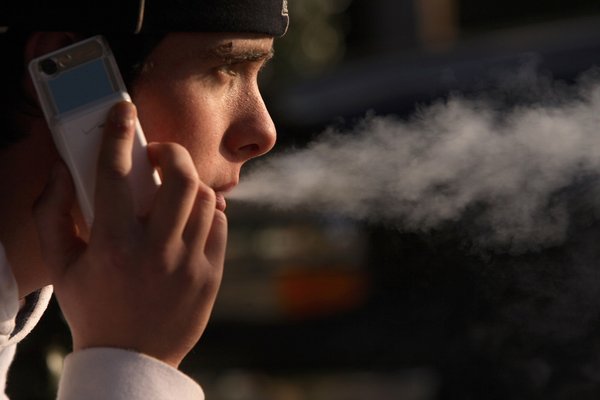Will your children buy candy, gum or little cigars?
By Dr. Tom Frieden, Special to CNN
Editor’s note: Dr. Tom Frieden is director of the Centers for Disease Control and Prevention.
(CNN) — They’re on display at cash registers all across America: Candy bars, packs of gum — and little cigars.
In some cases, those cigars aren’t tucked away behind the counter where only the attendant can get to them but right in front for anyone to pick up.
Traditional fat cigars are a small part of today’s cigar industry. Newer types of cancer sticks include cigarette-sized cigars, or little cigars, designed to look like a typical cigarette but which evade cigarette taxes and regulations.
Flavored little cigars can be sold virtually anywhere, and kids are a prime target of these new products.
Unlike cigarettes, many are sold singly or in small, low-priced packs, at a fraction of the cost of a cigarette in most states.
These little cigars have names like “Da Bomb Blueberry” and “Swagberry.” The flavors themselves — chocolate mint, watermelon, wild cherry and more — can mask the harsh taste of tobacco and are clearly attractive to children.
The Food and Drug Administration banned candy and fruit flavors in cigarettes so young people would not be enticed. But cigars weren’t covered.
The tobacco industry claims that its marketing efforts are solely aimed at adults. It has long argued that its marketing doesn’t increase demand or cause young people to smoke but instead is intended to increase brand appeal and market share among existing adult smokers.
How many grown-ups do you know who smoke grape-flavored cigars?
Little cigars have become more popular in recent years. Flavored brands have almost 80% of the market share.
In 2011, among middle school and high school students who currently smoke cigars, more than one in three reported using flavored little cigars.
Six states — Florida, Georgia, Maryland, Massachusetts, Rhode Island and Wisconsin — have youth cigar smoking rates the same as or higher than those of youth cigarette smoking.
Despite industry statements to the contrary, the link between marketing and youth tobacco use is clear.
Some legislative and regulatory actions that tackle elements of tax discrepancies, youth appeal and marketing are in place or under consideration.
New York and Providence, Rhode Island, have enacted city-wide ordinances prohibiting the sale of flavored tobacco products, including flavored little cigars. Both ordinances have been challenged and upheld in U.S. District Court.
In April, the Tobacco Tax and Enforcement Reform Act was introduced in the Senate. This bill aims to eliminate tax disparities between different tobacco products, reduce illegal tobacco trade and increase the federal excise tax on tobacco products.
Based on decades of evidence, the 2012 surgeon general’s reporton tobacco use among youth and young adults concluded that tobacco industry marketing causes youths to smoke, and nicotine addiction keeps them smoking.
This sobering fact holds true in spite of bans on advertising and promotions that target children and youths, and restrictions on certain other marketing activities.
Nearly 90% of smokers started before they were 18 years old, and almost no one starts smoking after age 25.
To prevent the needless death, disability and illness caused by smoking, we must stop young people from even starting to smoke.
A key part of prevention efforts must be action that will eliminate loopholes in restrictions on tobacco marketing, pricing and products that encourage children and youth to smoke.
I don’t think it’s too much to expect of our society that we protect our kids so they can reach adulthood without an addiction that can harm or kill them.
– – – –
The opinions expressed are solely those of Dr. Tom Frieden.
http://www.cnn.com/2013/12/11/health/frieden-little-cigars/

